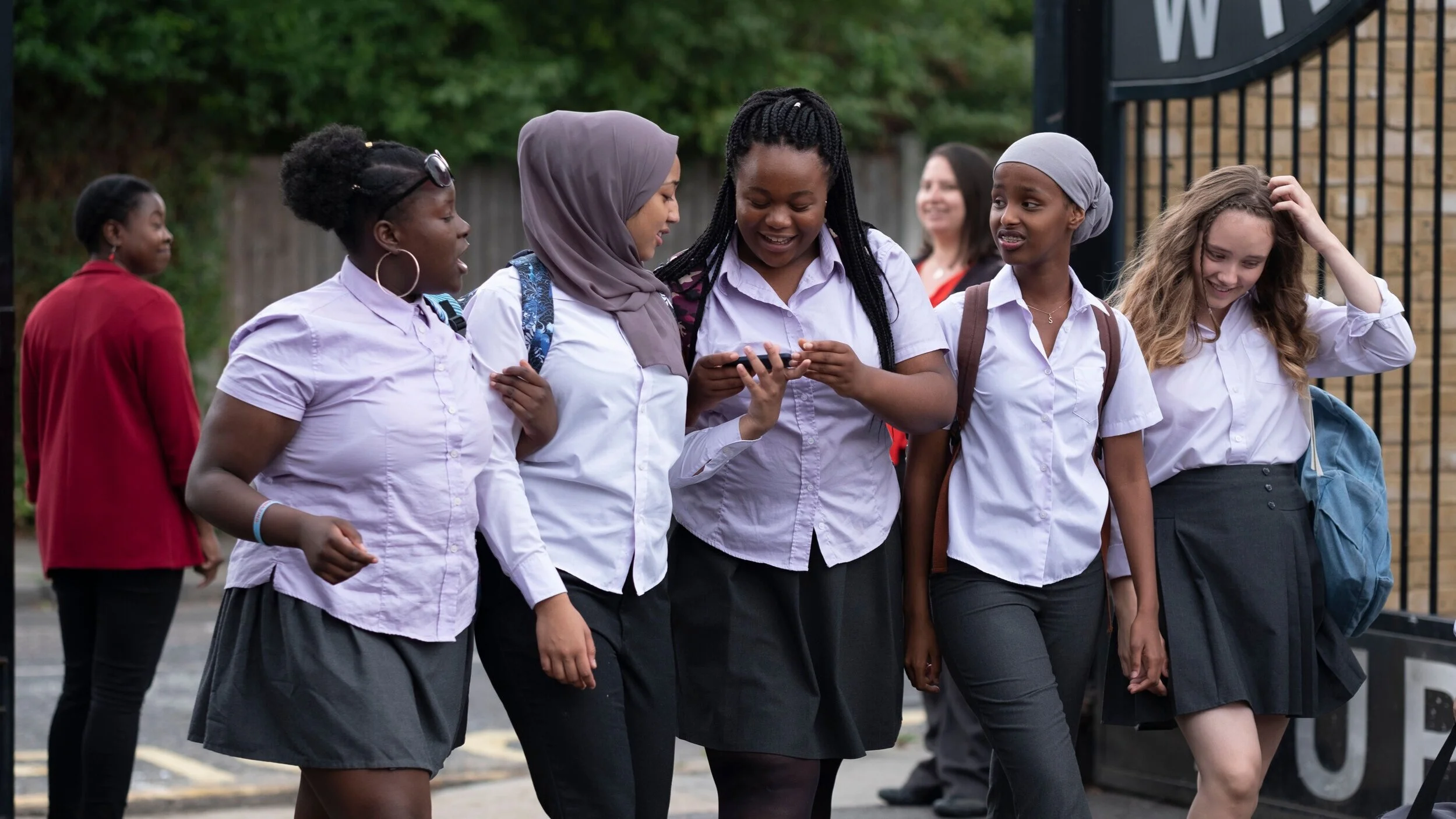Rocks
A British view of teenagers as authentic as Céline Sciamma's celebrated Girlhood.
This film directed by Sarah Gavron is something of a miracle and it is bound to be one of British cinema's finest achievements of 2020. It reminded me of how in the 1950s the Free Cinema movement, spear-headed by Lindsay Anderson, sought to bring ordinary working class lives onto the screen. But, whereas their chosen medium for that was the documentary, Rocks opts for a different, more challenging approach. It does so by telling what is in essence a scripted story but has it performed by non-professional players who, reflecting realities in their own lives, were encouraged to collaborate with the writers so that what is on the screen incorporates details that come from their own experience.
Set in the East End of London, Rocks deals with real-life situations in preference to giving us an elaborated plot, but it is rich in what it offers because it combines three distinct elements to telling effect. The film's title is the nickname of its central character, a Nigerian named Shola Omotoso played quite brilliantly by Bukky Bakray. Rocks is sixteen-years-old and we see her with her best friend, Sumaya (Kosar Ali), who is Somali and with other girls from her school class. When seen together these girls exhibit all the spirit and energy of youngsters in their mid-teens and on one level Rocks is a celebration of that. It is no surprise that many admirers of this film have compared it in terms of both subject matter and quality with the French film made in 2014, Girlhood, which focussed on a group of black teenagers in Paris.
In the case of Rocks, the pupils also include white girls and a range of nationalities and the film shows them sharing their enthusiasm in a way that indicates a complete lack of racist bias. Indeed, this film is a welcome portrayal of an ethnic mix that benefits all concerned. Some may see either this or the stress on the optimism of the girls as being the essential feature of the movie and both are, indeed, important. Nevertheless. I would argue that the central feature of Rocks is its study of the tragedy implicit whenever children lack parental care and affection.
Rocks lost her father when very young and is growing up with her 9-year-old brother Emmanuel (the utterly delightful D'angelou Osei Kissiedu) under the less than adequate care of a troubled mother (Layo-Christina Akinlude) who has been known to disappear for days at a time. Early on in Rocks this happens again with increased uncertainty as to whether or not she will reappear. Rocks is entirely devoted to her young brother and, hopeful of her mother's return and anxious that the social services should not become aware of their current situation, does her best to look after Emmanuel. She has recently made a new friend in Roshé (Shaneigha-Monik Greyson), another pupil but one new to the area, and this leads her into a situation in which to keep herself going she steals money. Both this action and the determination to hide the facts from the authorities are in this context wholly understandable because the bond between Rocks and Emmanuel is so sensitively conveyed. It is totally believable but without sentimentality in the portrayal of it.
The way in which things develop leads inevitably to a turning point in the lives of the two siblings and it is reached without a single false note by Gavron and her cast. However, I can't help suspecting that someone involved in the making of this film felt that something comparatively upbeat should be brought in for its concluding scenes. Thus it is that, after reaching a climax, Rocks continues for another ten minutes or so with what is less a coda than an additional episode. Some audiences will welcome the fact that there are some upbeat elements here, but in fact the narrative in this final section contains unconvincing details and fails to round off the film tellingly. Rocks has an individual tone but, even so, much in it is not far removed from the realism in the work of Ken Loach whose last film Sorry We Missed You rightly ended on a bleak note. That comparison does not favour Rocks but this film despite faltering at the close is still a gem, an unexpected triumph for all concerned and not least for Bukky Bakray and D'angelou Osei Kissiedu who are both unforgettable.
MANSEL STIMPSON
Cast: Bukky Bakray, Kosar Ali, D'angelou Osei Kissiedu, Shaneigha-Monik Greyson, Ruby Stokes, Tawheda Begum, Afi Okaidja, Layo-Christina Akinlude, Anastasia Dymitrow, Sharon D. Clarke.
Dir Sarah Gavron, Pro Ameenah Ayub Allen and Faye Ward, Screenplay Theresa Ikoko and Claire Wilson, from a story by Theresa Ikoko, Ph Hélène Louvant, Pro Des Alice Normington, Ed Maya Maffioli, Music Emilie Livienaise-Farrouch, Costumes Ruka Johnson.
Fable Pictures/Film4/Headgear Films/BFI-Altitude Film Distribution.
93 mins. UK. 2019. Rel: 18 September 2020. Cert. 12A.


